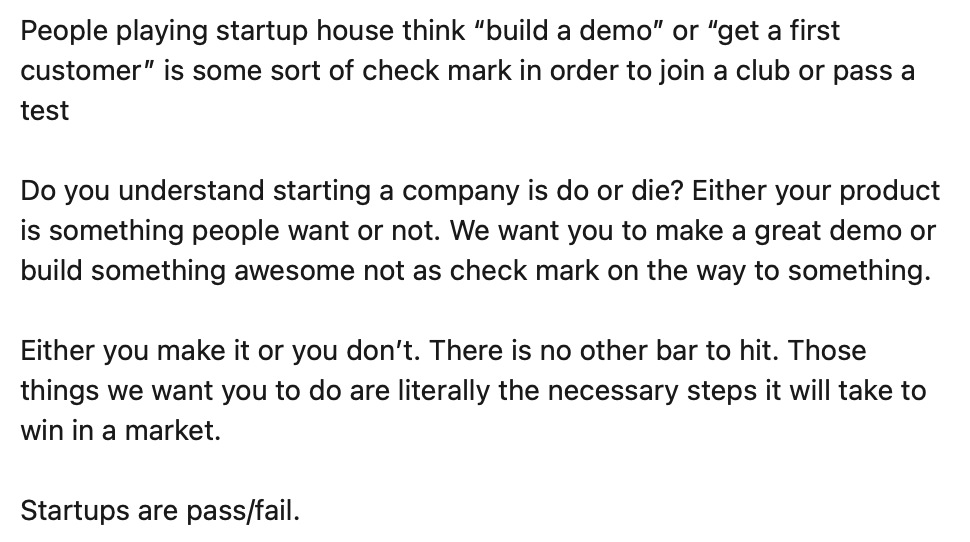Almost everything in the technology economy is a wrapper.
OpenAI depends on NVIDIA, and NVIDIA depends on TSMC, and TSMC depends on mining companies, and... well, eventually we hit materials science and physics.
At that low level, things get very objective. Elements react or they don't, the math works or it doesn't.
It's important to remember that this level of objectivity does not hold all the way back up. Things get hazier with human incentives and behavioral economics. So, when you're pitching your startup idea to someone, remember that things like inspiration, curiosity, potential, and momentum are more important than exactly proving how you're objectively the best investment, partner, or place to work. It's likely you're not... yet.
Be wary of people who say there's only one way to do something. This kind of objectivity signaling is a clear sign of disconnection from the meaning of learning something for yourself. Here's an example of objectivity signaling:

I hate to break it to the startup police that wrote this, but there is no one way to do this.
There is no global pass/fail rule.
No one person can set the rules for everyone else.
The startup police should read Randy Pausch's book, The Last Lecture. There's a great quote in it:
Experience is what you get when you didn't get what you wanted [...] And experience is often the most valuable thing you have to offer
– Randy Pausch
You're the only person that decides what pass/ fail looks like. The point is that if you learn something, you're growing. You're building your own unique perspective that no one else has.
It's not easy to do this. Schooling systems are not designed to teach us this way, and I'm not really sure they should be primarily designed to do so. I think having elements of structured and unstructured education is vital to cultivating creative thinking and showing how to apply that thinking to solving challenging problems for other people.
Staying on the track of being taught to meet the spec, pass the test, get into a program, and repeat, repeat, repeat... is just one way. That may be how you define success and how you learn, and that's fine, it also means that it's not for everyone.
I've reflected on some of my recent early stage work, and after putting together things like a Founder's Guide to the Galaxy I also think that it's so important to meet many people first and explore the market before going head into building and shipping first, solo. If you find yourself in that solo position, consider doing consulting work to feel out the priorities and challenges people are facing, people whose lives you seek to change. Maybe there's something you're uniquely suited to do, that can make a difference in someone's life. Maybe you end up remixing and bundling features of other products, or un-bundling to specialize a product offering in a certain area that saves time and energy.
It's up to you, not the startup police.
Initially, making meaning is so much more important than making money if you're starting a company. If you need cash on hand at that early stage, by all means, charge what you're worth for consulting first and make bank so you can keep going! Remember that you need meaning fueled momentum to get you off the ground with conviction to start a company.
And you know what, you might end up building a wrapper company, maybe a remixed company, maybe both... but it will unlikely be neither.
The point isn't to do the rare thing, the point is to do the thing you're uniquely suited to do. That's the challenge.
When do you find that thing, it's not enough to be just curious any more. You need a fire behind that curiosity to keep you going through the dips, and to not lose yourself in the peaks of excitement. You need furiosity, and it's forged with conviction in yourself and the meaning you're making in the world.
I'm pretty good at remixing, maybe I should start DJing again.